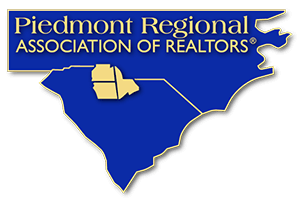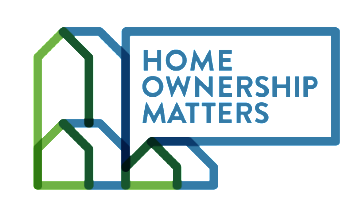For Buyers & Sellers
 In Partnership with Canopy MLS and 12 Local Associations, to include Piedmont Regional Association of REALTORS, we are working on a Consumer Advocacy Campaign.
In Partnership with Canopy MLS and 12 Local Associations, to include Piedmont Regional Association of REALTORS, we are working on a Consumer Advocacy Campaign.
The REALTORS Know More Campaign is working to educate Consumers the benefits of working with A REALTOR and the advantages of Canopy MLS.
A REALTOR® is a member of the National Association of REALTORS®, a real estate trade association of which all members agree to abide by its 17 article Code of Ethics.
What's The Difference between Real Estate Agent/Broker/REALTOR
REALTORS® aren’t just agents. They’re professional members of National Association of REALTORS® and subscribe to its strict code of ethics. This is the REALTOR® difference for home buyers:
1. Ethical treatment. Every REALTOR® must adhere to a strict code of ethics, which is based on professionalism and protection of the public. As a REALTOR®’s client, you can expect honest and ethical treatment in all transaction-related matters. The first obligation is to you, the client.
2. An expert guide. Buying a home usually requires dozens of forms, reports, disclosures, and other technical documents. A knowledgeable expert will help you prepare the best deal, and avoid delays or costly mistakes. Also, there’s a lot of jargon involved, so you want to work with a professional who can speak the language.
3. Objective information and opinions. REALTORS® can provide local information on utilities, zoning, schools, and more. They also have objective information about each property. REALTORs® can use that data to help you determine if the property has what you need. By understanding both your needs and search area, they can also point out neighborhoods you don’t know much about but that might suit your needs better than you’d thought.
4. Expanded search power. Sometimes properties are available but not actively advertised. A REALTOR® can help you find opportunities not listed on home search sites and can help you avoid out-of-date listings that might be showing up as available online but are no longer on the market.
5. Negotiation knowledge. There are many factors up for discussion in a deal. A REALTOR® will look at every angle from your perspective, including crafting a purchase agreement that allows enough time for you to complete inspections and investigations of the property before you are bound to complete the purchase.
6. Up-to-date experience. Most people buy only a few homes in their lifetime, usually with quite a few years in between each purchase. Even if you’ve done it before, laws and regulations change. REALTORS® handle hundreds of transactions over the course of their career.
7. Your rock during emotional moments. A home is so much more than four walls and a roof. And for most people, property represents the biggest purchase they’ll ever make. Having a concerned, but objective, third party helps you stay focused on the issues most important to you.
All real estate licensees are not the same. Only real estate licensees who are members of the NATIONAL ASSOCIATION OF REALTORS® are properly called REALTORS®. They proudly display the REALTOR "®" logo on their business card or other marketing and sales literature. REALTORS® are committed to treat all parties to a transaction honestly. REALTORS® subscribe to a strict code of ethics and are expected to maintain a higher level of knowledge of the process of buying and selling real estate. An independent survey reports that 84% of home buyers would use the same REALTOR® again.
Real estate transactions involve one of the biggest financial investments most people experience in their lifetime. Transactions today usually exceed $100,000. If you had a $100,000 income tax problem, would you attempt to deal with it without the help of a CPA? If you had a $100,000 legal question, would you deal with it without the help of an attorney? Considering the small upside cost and the large downside risk, it would be foolish to consider a deal in real estate without the professional assistance of a REALTOR®.
Like finding the right house, selecting a REALTOR® you can trust and comfortably work with is paramount. Just as you wouldn't be casual in the selection of your doctor or your attorney, you shouldn't take the selection of your REALTOR® lightly. Indeed, the best way to find such a professional is through recommendations from family and friends. Of course, you should interview several REALTORS® before you choose one.
The Foreclosure Process in South Carolina
How does the foreclosure process work in South Carolina?
A mortgage is created when a person (a borrower) pledges (or mortgages) a house and/or his land to a lender to secure the repayment of his/her loan. If a borrower falls behind in his/her payments, a lender will then try to foreclose the home in order to resell it to repay the money it lent.
South Carolina law says that all foreclosures must be done in court and only a judge can order the sale of your house. Therefore, if you fall behind in paying your mortgage, a lender will file papers with the court and ask for the court to find that you owe them a debt and to sell your home to cover the loan.
You will be “served” papers to let you know that this process has begun, and then you generally have 30 days to send an answer to the lawyers and to make any claims you may have against the lender.
If you do not serve and file an answer, the court may give a “default judgment” at a hearing, and the lender can then sell your property and use that money to pay off the debt and the legal costs for bringing the foreclosure.
If you do answer or make a counter-claim, then there will be a hearing to see if you will be allowed to keep your home or if the property must be sold.
If the court gives the lender permission to sell the property, the lender must advertise the sale for three weeks in a local newspaper and then the house is sold "on the courthouse steps."
Are there ways the lender and I can work together to prevent me from losing my home?
Yes. Your lender might modify your loan depending on your loan type. The largest modification program is a federal government program called the Home Affordable Modification Program (HAMP). Your lender must offer you a chance to apply for HAMP if your loan could be eligible for the program. If you qualify for HAMP, your total house payment could be reduced to a more affordable amount.
Many lenders also offer “in-house” programs that allow you to temporarily lower your payment while you get back on your feet. They can be complicated, and it is best to go through a qualified housing counseling program to help you through this process.
Remember: Just because you are talking to your lender, the foreclosure process does NOT necessarily stop.
What can I do if my home is in foreclosure?
If you find yourself in default, and the foreclosure process has begun, take it very seriously, as you could lose your home.
Contact a lawyer. A lawyer can help to determine whether you have any defenses or counterclaims to the foreclosure. There are defenses and counterclaims that you may not even know about that may force the bank to work with you to save your home.
You can sell your own home. If you do decide to do this, talk to a few different real estate agents to get a better idea of what your house is worth. You may be able to sell your home for less than you owe, this is called a “short sale”. The lender may agree to accept this and write off the rest of what you owe. There are possible tax implications with this, so you should speak with an attorney or tax professional.
You can work with your lender to try and negotiate a “deed-in-lieu” of foreclosure. Often referred to as “cash for keys”, this means that you are deeding the house back to the lender. If the lender agrees, the foreclosure will be cancelled and the amount owed under the mortgage may be forgiven. There are possible tax implications with this, so you should speak with an attorney or tax professional. These materials are for informational purpose only and are not intended to be and should not be mistaken for legal or tax advice. You should contact an attorney or tax professional to obtain advice with respect to your situation.
Explore programs, such as SC HELP, to see if there are resources available to help you stay in your home.
In a society known for over-extending itself, it's no wonder that so many Americans find themselves in debt and contemplating bankruptcy. While it does offer some financial relief, bankruptcy can have a lasting impact on your credit history and finances.
What is bankruptcy?
Personal bankruptcy can be loosely defined as a legal proceeding where you essentially say, "I can't pay my debts." From there, you file paperwork in Bankruptcy Court to support that claim. And although there are six types of bankruptcy, the two most commonly filed for by individuals are Chapter 13 (reorganization) and Chapter 7 (liquidation).
Filing bankruptcy is a personal choice, but it's not always the right choice for everyone.
Ways to avoid bankruptcy
When trying to determine the best tactic to avoid bankruptcy and come up with alternatives to bankruptcy, a good first step is to review your credit report. The credit report will show you how much you owe and to whom. The information on your credit report will help you create a plan for paying off your debts.
Once you know your total debt and where it came from, you can start to explore your options, such as:
- Eliminating credit cards— Having too many credit cards makes spending and increasing your debt too easy. Try to keep one credit card for emergencies.
- Selling unnecessary items— Sell off items that you can live without. It will give you cash to either pay off creditors or make loan payments.
- Exploring debt consolidation— Instead of struggling to pay five high-interest rate credit card bills each month, take out a debt consolidation loan and pay a lower monthly payment to one creditor.
- Trying credit counseling— Credit counselors can give you the financial expertise you need before it's too late. These experienced professionals specialize in helping people who are overwhelmed with bills they can't pay. In fact, The Bankruptcy Abuse Prevention and Consumer Protection Act of 2005 now requires those who wish to file for bankruptcy to seek credit counseling before an official bankruptcy declaration can be made.
- Creating a budget— If you spend more than you earn, you are living beyond your means. Creating a monthly budget that includes all your expenses and income can help you see where you're spending and help cut unnecessary expenses.
Why bankruptcy is never an ideal solution
Many are drawn to personal bankruptcy thinking that it is a quick and safe way to get financial protection. But this is not really the case. Here are a few examples of some serious downsides:
- Loss of property— You will not be allowed to keep properties you are paying for unless you somehow continue to make payments.
- Debt and your bills do not go away— You will still be responsible for paying any secured loans, like your mortgage, as well as student loans, child support and alimony.
- Your outstanding debts still transfer to others— Any individuals who acted as cosigners for you will still owe that debt. They are not excused from these debts just because you declared bankruptcy.
After you have researched all your options and exhausted all possible alternative bankruptcy solutions, if filing for bankruptcy remains a possible solution, contact a bankruptcy lawyer.
Refinancing a mortgage means paying off an existing loan and replacing it with a new one. There are many common reasons why homeowners refinance: The opportunity to obtain a lower interest rate; the chance to shorten the term of their mortgage; the desire to convert from an adjustable-rate mortgage (ARM) to a fixed-rate mortgage, or vice versa; the opportunity to tap a home's equity in order to finance a large purchase; and the desire to consolidate debt. Some of these motivations have benefits and pitfalls. And because refinancing can cost between 3% and 6% of the loan's principal and —like taking out the original mortgage — requires appraisal, title search and application fees, it's important for a homeowner to determine whether his or her reason for refinancing offers a true benefit.
Securing a Lower Interest Rate
One of the best reasons to refinance is to lower the interest rate on your existing loan. Historically, the rule of thumb was that it was worth the money to refinance if you could reduce your interest rate by at least 2%. Today, many lenders say 1% savings is enough of an incentive to refinance.
Reducing your interest rate not only helps you save money, but it increases the rate at which you build equity in your home, and it can decrease the size of your monthly payment. For example, a 30-year fixed-rate mortgage with an interest rate of 9% on a $100,000 home has a principal and interest payment of $804.62. That same loan at 6% reduces your payment to $599.55.
Shortening the Loan's Term
The prospect of spending 30 years paying back a mortgage is discouraging. If you have 20 years remaining on your loan, the option to shorten your loan term to 15 can be tempting. Taking away 5 years from a 20-year loan means a higher monthly bill, but freedom from the mortgage after 15 years instead of 20 is definitely more appealing. But if it's only a matter of a few hundred dollars more, why not? Never mind if you'll be paying a higher monthly bill.
You'll be saving thousands of dollars from interests alone with the five years knocked off from the 20-year loan term. Another benefit is building your home equity faster. A refinance mortgage loan offers the chance to restructure your terms.
Converting Between Adjustable-Rate and Fixed-Rate Mortgages
While ARMs start out offering lower rates than fixed-rate mortgages, periodic adjustments often result in rate increases that are higher than the rate available through a fixed-rate mortgage. When this occurs, converting to a fixed-rate mortgage results in a lower interest rate as well as eliminates concern over future interest rate hikes.
Conversely, converting from a fixed-rate loan to an ARM can also be a sound financial strategy, particularly in a falling interest rate environment. If rates continue to fall, the periodic rate adjustments on an ARM result in decreasing rates and smaller monthly mortgage payments, eliminating the need to refinance every time rates drop. Converting to an ARM may be a good idea especially for homeowners who don't plan to stay in their home for more than a few years. If interest rates are falling, these homeowners can reduce their loan's interest rate and monthly payment, but they won't have to worry about interest rates rising in the future.
Tapping Equity and Consolidating Debt
While the previously mentioned reasons to refinance are all financially sound, mortgage refinancing can be a slippery slope to never-ending debt. It's important to keep this in mind when considering refinancing for the purpose of tapping into home equity or consolidating debt.
The Bottom Line
Refinancing can be a great financial move if it reduces your mortgage payment, shortens the term of your loan or helps you build equity more quickly. When used carefully, it can also be a valuable tool in getting your debt under control. Before you refinance take a careful look at your financial situation, and ask yourself: How long do I plan to continue living in the house? And how much money will I save by refinancing?
Refinancing cost between 3 and 6% of the loan's principal. If you are not planning to stay in the home for more than a few years, the cost of refinancing may negate any of the potential savings. It also pays to remember that a savvy homeowner is always looking for ways to reduce debt, build equity, save money and eliminate that mortgage payment. Taking cash out of your equity when you refinance doesn't help you achieve any of those goals.








